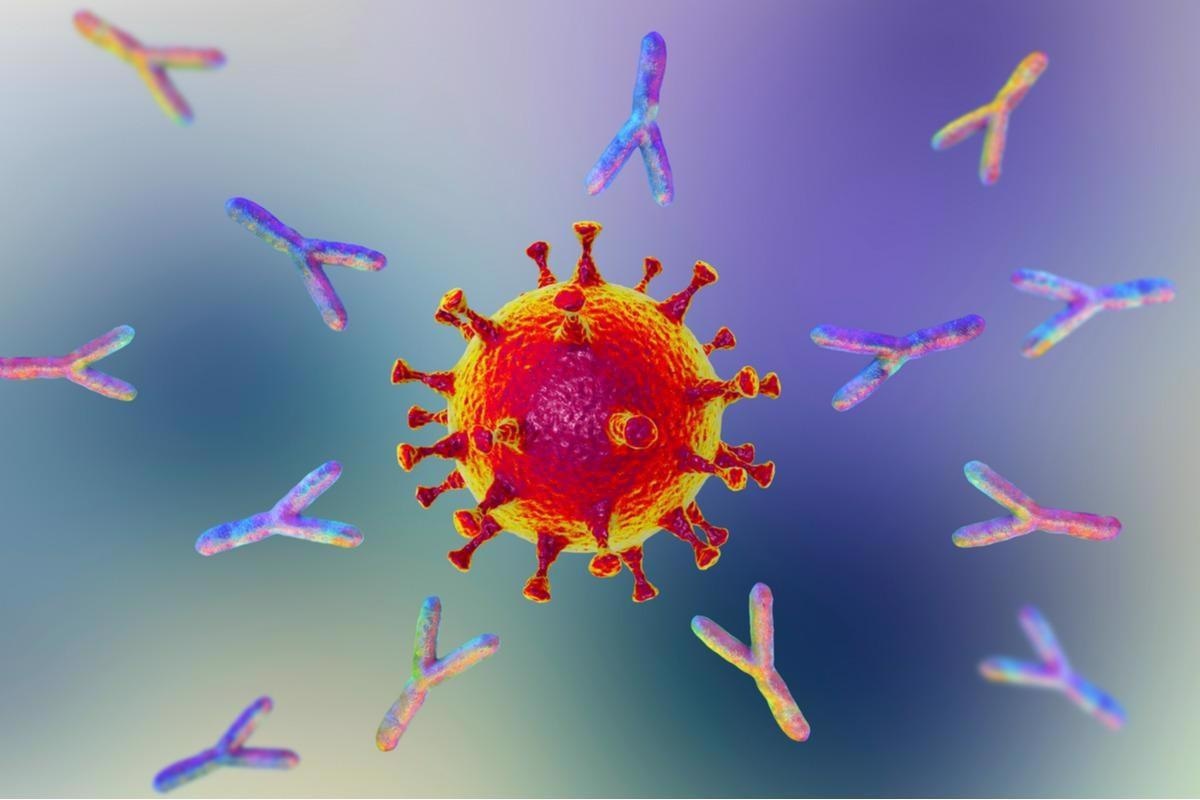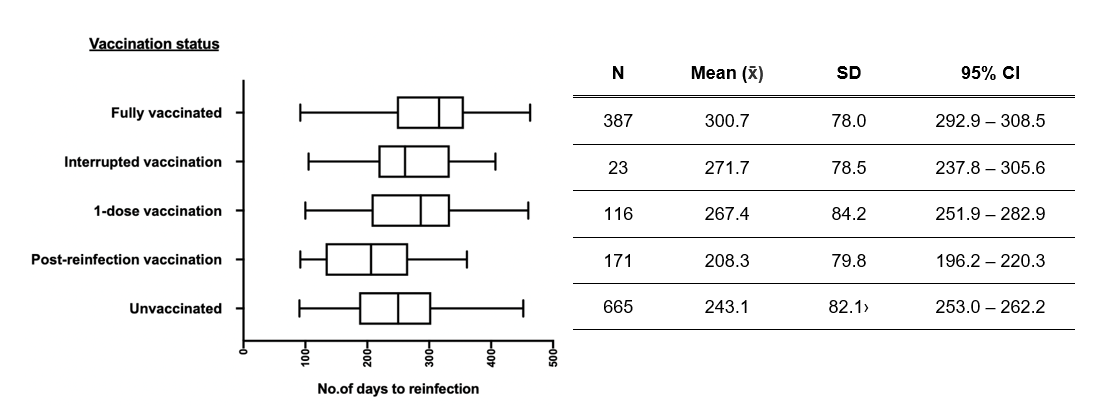To date, SARS-CoV-2, the causative virus of the coronavirus disease 2019 (COVID-19), has infected more than 394 million people globally. Several newer variants of the virus have emerged throughout the COVID-19 pandemic, the latest being the Omicron variant first reported in November 2021. The development of vaccines against SARS-CoV-2 has been unprecedentedly fast, but with over ten billion vaccine doses administered to date, the pandemic still remains a significant health crisis. Vaccine breakthrough cases and reinfections have been documented for COVID-19, but the clinical severity of the disease in these cases has been observed to be low.

Study: Epidemiological Assessment of Sars-Cov-2 Reinfection. Image Credit: Kateryna Kon/Shutterstock

 *Important notice: Research Square publishes preliminary scientific reports that are not peer-reviewed and, therefore, should not be regarded as conclusive, guide clinical practice/health-related behavior, or treated as established information.
*Important notice: Research Square publishes preliminary scientific reports that are not peer-reviewed and, therefore, should not be regarded as conclusive, guide clinical practice/health-related behavior, or treated as established information.
The study
In the present study, researchers carried out a retrospective epidemiological analysis of COVID-19 reinfections recorded in Bahrain between April 1, 2020, and July 23, 2021. The rate at which reinfections occur is not fully understood, and therefore, the authors investigated the SARS-CoV-2-reinfected cases to determine the disease characteristics. Reinfections were analyzed in fully and partially vaccinated patients, unvaccinated patients, patients with interrupted vaccination schedules, i.e., reinfection within 14 days of complete vaccination course, and in individuals vaccinated after SARS-CoV-2 reinfection.
Data of the individuals infected at least twice with SARS-CoV-2 were collected from Bahrain’s National COVID-19 database, and around 1,390 cases of COVID-19 reinfections were identified. Symptomatic cases can develop a cough, fatigue, shortness of breath, loss of smell/taste, and fever, while an asymptomatic patient shows no symptoms throughout the disease episode.
Reinfection was defined as a relapse of COVID-19 after at least 90 days of the first infection, and it was confirmed with a positive reverse transcription-polymerase chain reaction (RT-PCR) test with a cycle threshold (Ct) value less than 35.
Findings
Of the 1,390 reinfections identified from the national database, 1362 cases were examined and the rest were excluded from the study due to insufficient data. No COVID-19 reinfections were observed between April 2020 and June 2020, and the number of SARS-CoV-2-reinfected cases increased gradually, with a maximum peak of reinfections (579) observed in May 2021. Reinfection prevalence was higher among males (60.3 %) than females (30.7 %), and across all vaccinated strata, it was the highest (29.7%) in people aged 30-39 years and lowest (6.3 %) in children 9 years or below. In the unvaccinated group, people aged 20 to 29 years were the most vulnerable and those above 50 years were the least susceptible to COVID-19 reinfection.

Summary of number of days to reinfection across different vaccination statuses for 1362 individuals. Boxplot charts plotting minimum, IQR, median and maximum for each status on the y-axis, with corresponding descriptive statistics tabulated.
The researchers noted that the number of reinfections had increased with an increase of time after the first infection. Around 46.4% of the SARS-CoV-2 reinfections occurred at least nine months later the onset of the first infection. Most of the patients (35.7 %) were found to be asymptomatic during their first and second COVID-19 episodes, while 19.5% of cases developed symptoms during the two episodes. 89 (or 6.6% of the) reinfected cases required hospitalization, and nine hospitalized individuals had severe COVID-19.
Variant sequencing data were available for about 145 reinfected persons which revealed that 46.2% or 67 sequences were of the Delta variant and 60 sequences of the Alpha variant.
Unvaccinated individuals constituted most of the reinfection cases with about 665 individuals, followed by the fully vaccinated individuals (387) and vaccinated individuals after reinfection (171). The lowest number of reinfections was seen among the vaccination interrupted group, with just three cases reported during the study period.
Among the reinfections in the fully vaccinated group, about 338 individuals constituting around 87.3%, were vaccinated with the Sinopharm vaccine and others were vaccinated with the Covishield (5.2 %) Sputnik V (5.2 %), and BNT162b2 (2.3 %) vaccines.
Conclusions
The study findings reveal that both vaccinated and infected individuals can re-contract SARS-CoV-2, albeit with a lower disease severity than the initial infection. Reinfections were the highest in the unvaccinated people indicating that the unvaccinated are more vulnerable to subsequent infections. Fully vaccinated and vaccination-interrupted individuals were exposed to the SARS-CoV-2 antigen thrice (two doses of vaccine and initial COVID-19 infection) before the onset of reinfection and partially vaccinated people were exposed twice (one dose of vaccine and first infection), while the unvaccinated group was exposed to the virus just once before reinfection, which can explain the observed number of cases in these groups.
The team noted that the vaccination-induced immunity was better-performing than infection-induced immunity, which contradicts the existing notion of comparable immunity by vaccination or infection. In addition, the late incidence of reinfection after primary infection suggests that the immune responses decrease after a certain period regardless of infection or vaccination status.

 *Important notice: Research Square publishes preliminary scientific reports that are not peer-reviewed and, therefore, should not be regarded as conclusive, guide clinical practice/health-related behavior, or treated as established information.
*Important notice: Research Square publishes preliminary scientific reports that are not peer-reviewed and, therefore, should not be regarded as conclusive, guide clinical practice/health-related behavior, or treated as established information.